Discover Comoros: Hidden Gems and Untouched Beauty in the Indian Ocean
Nestled off the southeastern coast of Africa in the warm embrace of the Indian Ocean, the Comoros archipelago is a treasure trove of natural wonders, vibrant cultures, and spellbinding serenity. Often overshadowed by its more famous neighbours like the Seychelles, Mauritius, and Madagascar, Comoros offers an undeniable allure to those seeking an unspoiled paradise with an air of mystery.
Whether you’re an adventurer, culture enthusiast, or someone longing for a tranquil escape, Comoros is an enchanting destination that deserves a spot on your travel list. In this article, we’ll guide you through the hidden gems and untouched beauty of Comoros while revealing the best tips and insights to make your journey unforgettable. Let’s dive into the captivating charm of this underrated marvel.
A Little-Known Paradise: What Makes Comoros Unique
Located at the northernmost end of the Mozambique Channel, the Union of the Comoros, as it’s officially known, is an archipelago nation consisting of three main islands: Grande Comore (Ngazidja), Mohéli (Mwali), and Anjouan (Nzwani). Each island boasts unique ecosystems, stunning landscapes, and intriguing histories, giving Comoros an unmatched diversity in such a small region.
Unlike the commercialised hotspots of the Indian Ocean, Comoros retains a raw charm with its untouched nature and lack of mass tourism. You’ll find pristine beaches, volcanic landscapes, lush rainforests, and thriving coral reefs. With fewer crowds, the islands offer a tranquil respite for those yearning for a sustainable and off-the-beaten-path travel experience.
Why Visit Comoros?
- Seclusion: Forget the crowds! When you visit Comoros, it’s easy to feel like you have the entire island to yourself.
- Cultural Diversity: A unique blend of African, Arab, and French influences creates a truly fascinating culture.
- Undiscovered Beaches: Powdery white sands and turquoise waters rival top tropical destinations without the mass tourism.
- Biodiversity Hotspot: From lush rainforests to thriving marine life, Comoros is a haven for nature lovers.
- Rich History: With its historical significance as a trading post along the Indian Ocean, Comoros has a fascinating past waiting to be discovered.
Discovering the Islands
Each of Comoros’s three main islands brings something special to the table. Whether it’s adventuring up Mount Karthala, swimming with turtles in Mohéli, or immersing yourself in the charming culture of Anjouan, there’s no shortage of wonders awaiting discovery.
1. Grande Comore (Ngazidja): Gateway to the Archipelago
Grande Comore, the largest island in the Comoros, is the most accessible for travellers with its international airport and capital, Moroni. As the cultural and economic heart of the nation, Grande Comore offers an excellent starting point for your journey.
Things to Do in Grande Comore
- Visit Moroni: Wander through the labyrinthine streets of the Medina, where ancient Arabian influences are woven into the island’s fabric. And while you’re there, don’t miss the iconic Old Friday Mosque with its stunning views of the ocean.
- Mount Karthala: For thrill-seekers, hiking this massive active volcano is an experience of a lifetime. Covering nearly two-thirds of the island, it offers unparalleled vistas and insight into Comoros’s volcanic origins.
- Chomoni Beach: Rejuvenate by immersing yourself in the beauty of this serene, picture-perfect beach surrounded by volcanic rock formations and turquoise waters.
- Local Cuisine: Savour island flavours like langouste à la vanille (lobster in vanilla sauce), showcasing Comoros’s rich culinary heritage influenced by local spices.
Pro Traveller Tip
Pack good hiking shoes! Whether it’s the bustling streets of Moroni or the rugged volcanic trails, comfortable footwear is a must.
2. Mohéli (Mwali): The Wild Island
Mohéli is the smallest and arguably the most pristine of the three islands. Known for its incredible marine biodiversity, Mohéli is often referred to as the ecological gem of Comoros.
Things to Do in Mohéli
- Mohéli Marine Park: As the nation’s first protected marine reserve, this park attracts visitors eager to swim with sea turtles, explore coral reefs, and cruise alongside dolphins and whales.
- Itsamia Turtle Beach: Witness endangered green sea turtles nesting in this remarkable conservation area—a once-in-a-lifetime experience.
- Ylang-Ylang Plantations: Mohéli thrives on the production of ylang-ylang, a fragrant essence used in perfumes. Visit local farms to see how this island treasure is cultivated.
- Waterfalls: Hidden waterfalls and lush greenery make Mohéli a paradise for both hikers and photographers.
Pro Traveller Tip
Bring snorkelling gear. The underwater world at Mohéli is extraordinary, with coral reefs that are home to a kaleidoscope of marine life.
3. Anjouan (Nzwani): The Perfumed Isle
Known as the “Perfumed Isle”, Anjouan entices visitors with the sweet scents of vanilla, cloves, and ylang-ylang. More mountainous and forested than the other islands, Anjouan is an adventurer’s dream.
Things to Do in Anjouan
- Explore Mutsamudu: The island’s largest town boasts an intriguing medina with narrow streets, bustling markets, and historical architecture, including the 17th-century citadel.
- Trekking Through Rainforests: Discover trails filled with endemic flora and fauna, including rare bird species such as the Anjouan sunbird.
- Coastline Adventures: Pristine beaches and rugged cliffs beg to be explored. Try activities like kayaking and fishing for a deeper connection to the island’s natural bounty.
- Heritage Tours: Learn about centuries of Arab and African influence that have left an indelible mark on Anjouan’s culture and traditions.
Pro Traveller Tip
Hire a local guide to dive deeper into the island’s history and discover hidden trekking routes not found on tourist maps.
Best Time to Visit Comoros
Comoros enjoys a tropical climate, offering warm temperatures year-round. The best time to visit is during the dry season, from May to October, when the weather is balmy, and the seas are calm. The wet season (November to April) sees heavier rain and higher humidity but is ideal for those looking to avoid even the smallest crowds.
Practical Travel Tips for Comoros
- Visa Information: Most visitors can obtain a visa on arrival for a fee. Make sure your passport is valid for at least six months from your arrival date.
- Currency: The official currency is the Comorian Franc (KMF). Euros are widely accepted, but it’s advisable to carry cash since ATMs are scarce.
- Language: French and Arabic are official languages, and Shikomori, a blend of Swahili and Arabic, is widely spoken.
- Transportation: Inter-island travel is possible by ferry or small planes. Plan your logistics ahead of time, as services may vary.
- Respect Local Customs: Comoros is a predominantly Muslim nation. Dress modestly, especially outside of beach areas, and respect prayer times and local traditions.
Why Choose Comoros for Your Next Adventure?
If you’re tired of the same crowded beaches and overtourism, Comoros provides a fresh alternative. It’s a sanctuary where untouched nature, a rich cultural tapestry, and warm hospitality converge. Whether you dream of snorkelling with endangered turtles, hiking through lush rainforests, or simply unwinding on an empty beach, Comoros has something for everyone.
As the world becomes increasingly connected, destinations like Comoros stand out as a beacon of serenity. Embrace this chance to discover a hidden paradise in the Indian Ocean before the world takes notice.
FAQs about Comoros
1. What is Comoros known for?
Comoros is renowned for its stunning beaches, ylang-ylang plantations, and unparalleled marine biodiversity.
2. Is it safe to travel to Comoros?
Yes, Comoros is generally considered safe. However, like any destination, travellers should exercise caution and respect local customs.
3. How can I get to Comoros?
Most international flights land at Prince Said Ibrahim International Airport in Moroni, the capital of Grande Comore.
4. Do I need to speak French to travel to Comoros?
French is widely spoken, and knowing a few basic phrases will be helpful.
5. What currency is used in Comoros?
The Comorian Franc (KMF) is the official currency. Euros are also accepted.
Start planning your dream trip to Comoros with Nihosi Travels & Tours for expertly guided experiences and exclusive itineraries. Discover the untouched beauty of the Indian Ocean—Comoros is waiting!

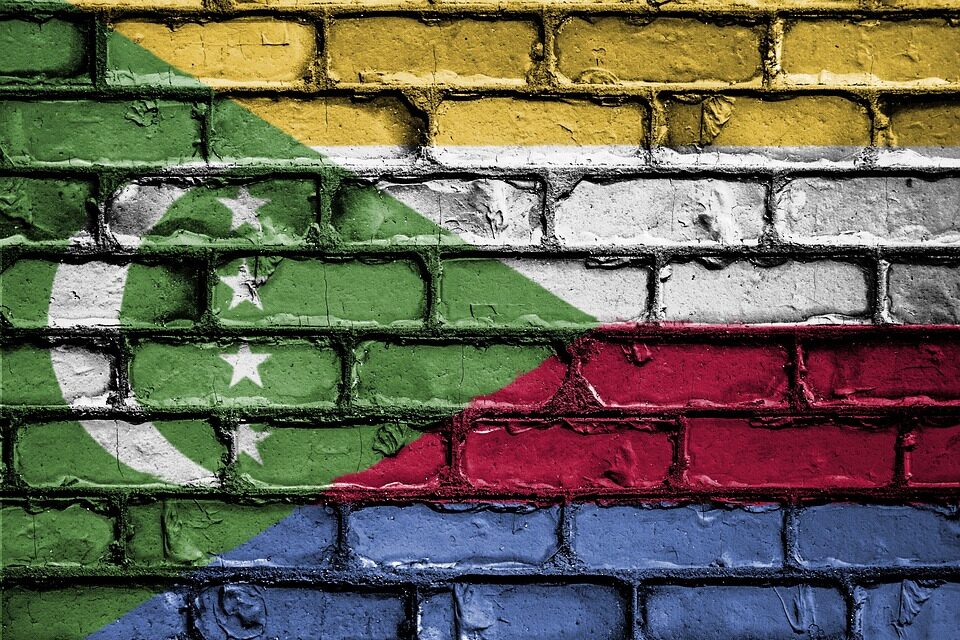
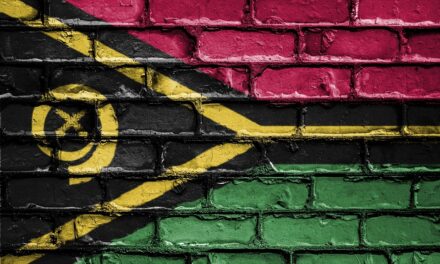

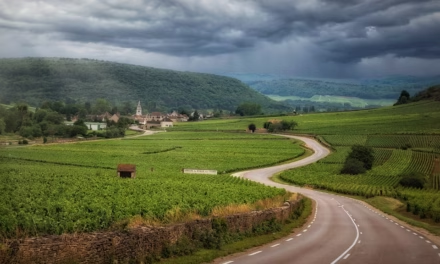

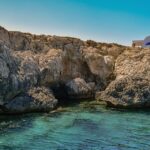

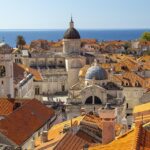

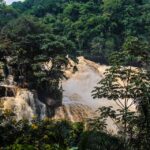
Subscribe To Our Newsletter
Join our mailing list to receive the latest news and updates from our team.
You have Successfully Subscribed!